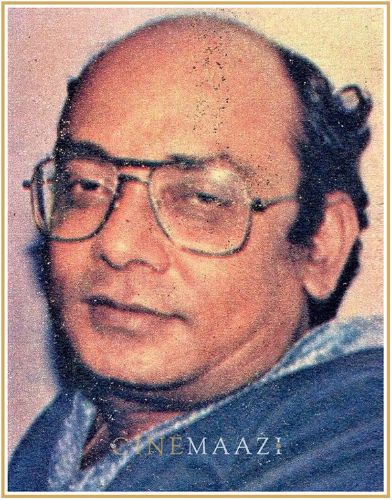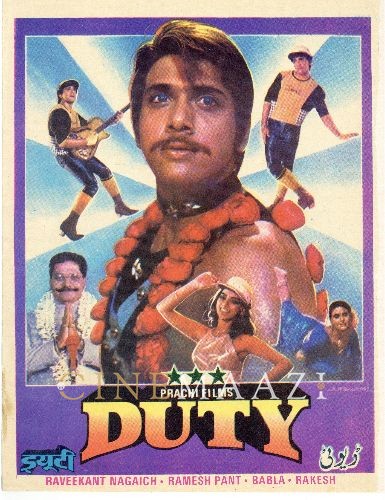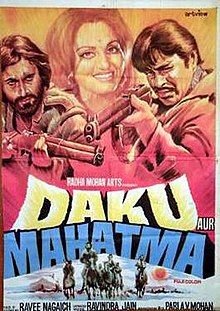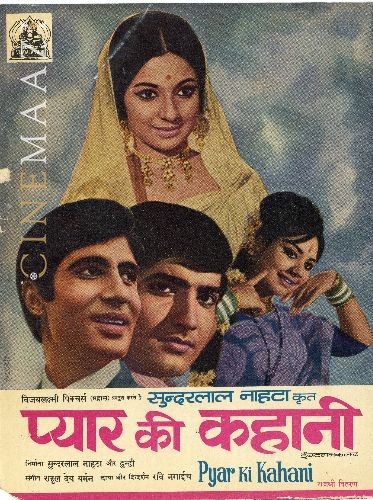Ravikant Nagaich

Subscribe to read full article
This section is for paid subscribers only. Our subscription is only $37/- for one full year.
You get unlimited access to all paid section and features on the website with this subscription.
Not ready for a full subscription?
You can access this article for $2 , and have it saved to your account for one year.
- Born: 5 July, 1931 (Atrauli, Uttar Pradesh, British India)
- Died: 6 January, 1991 (Bombay, Maharashtra)
- Primary Cinema: Hindi
- Spouse: Rani Nagaich
- Children: Anusheel Nagaich, Gopi Nagaich, Leena Bahety
Cinematographer and director Ravikant Nagaich is known for big budget hits such as The Train (1970) and Mere Jeevan Saathi (1972), as well as low-budget thrillers like Surakksha (1979) and Wardat (1981). While he worked as cintematographer in films such as Sri Krishnarjuna Yudham (1963), Shri Krishna Pandaviyam (1966), and Gudachari 116 (1967), he directed approximately 24 films in the course of his career, including The Train, Mere Jeevan Saathi, Keemat (1973), Morchha (1980), Tarkeeb (1984), and Shapath (1984).
Born on 5 July, 1931 he began his career in films as a cinematographer in Telugu films. Making his debut with N T Rama Rao’s Sri Seetha Rama Kalyanam (1961), he went on to work in films such as Bandipotu (1963), Veera Kesari (1963), and Veerabhimanyu (1965). A few years later, he went on to make his debut as a director in Hindi films with Farz (1967). This Hindi-language spy thriller film was produced by Sunderlal Nahata Dundi under the Vijaya Lakhshmi Pictures banner and starred Jeetendra and Babita with music composed by Laxmikant Pyarelal. It was a remake of the Telugu film Gudachari 116, and was hugely inspired by the James Bond genre of films. This low-budget thriller was a surprise hit, boosting the careers of Nagaich as well as the lead actors. The film had multiple sequels, namely Keemat (1973) which starred Dharmendra as Agent 116 Gopal, and Raksha (1981) and The Gold Medal (1984) featuring Jeetendra reprising his role as Agent 116, Gopalkishan Pandey. All these films were directed by Nagaich.
Though he did have a few big budget hits it was for his modest budget thrillers in the secret agent mode that he became famous. Whether Farz, Keemat, or Raksha, they succeeded at the box office, winning over sections of the audience with crowd-pleasing stunts and special effects. His films Farz and Surakksha are credited with enabling their respective lead stars Jeetendra and Mithun Chakraborty to move to commercial films.
Among the films he directed are Pyar Ki Kahani (1971), Kaala Sona (1975), Jadu Tona (1977), Daku Aur Mahatma (1977), Morchha (1980), Saahas (1981), Laparwah (1981), Sugandh (1982), Tarkeeb (1984), Shapath (1984), and Duty (1986) which was to be his last film.
He also produced two films in the 1980s, namely Wardat and Shapath (1984). The plot of Wardat, starring Mithun Chakraborty, revolves around a locust attack on farmlands, resulting in hefty damages. The government suspects it to be the work of terrorists and assigns the case to their best agent Gunmaster G-9 alias Gopinath, who takes charge and begins the investigation. His work leads him to the dark secret world of underground scientists who are capable of harnessing nature to their diabolical end. Shapath, starring Raj Babbar and Smita Patel, told the tale of a Commissioner of Police, who, impressed with the diligence and bravery of his officer Vijay, asks him to re-locate to a lawless town named Shona Pur. Vijay accepts, and arrives there incognito. He is faced with several challenges, including lackadaisical policemen, and sets out to put things right. He meets and falls in love with a young woman named Shanti, who is searching for buried treasure. Together, they go through underground caverns, snake-pits, and a gang of merciless thieves, in order to reach the treasure.
His wife Rani Nagaich produced the 1977 film Jadu Tona. His son Anusheel had appeared onscreen in the song Yeh gaon pyaara pyaara, sitting in a haystack. His son Gopi worked as a cameraman in the South Indian film industry.
Ravikant Nagaich passed away, aged 60, on 6 January, 1991.
-
Filmography (14)
SortRole
-

Duty 1986
-

Tarkeeb 1984
-
Sugandh 1982
-

Morchha 1980
-

Surakksha 1979
-
Thief Of Baghdaad 1977
-

Daku Aur Mahatma 1977
-

Jadu Tona 1977
-
Keemat 1973
-

Pyar Ki Kahani 1971
-

Haseenon Ka Devta 1971
-
The Train 1970
-











.jpg)



